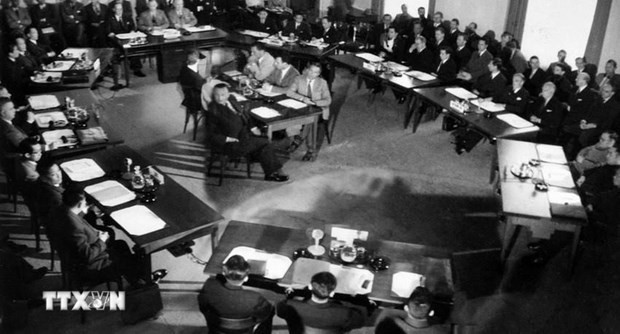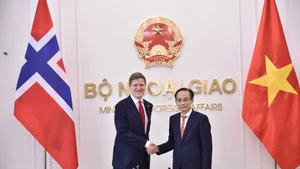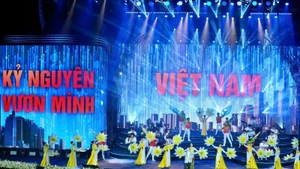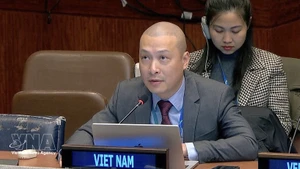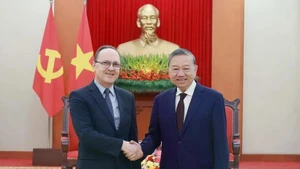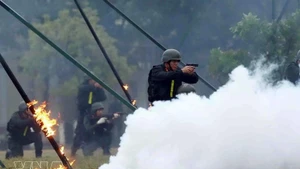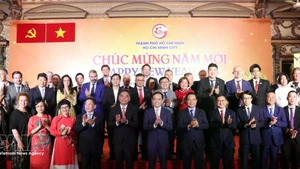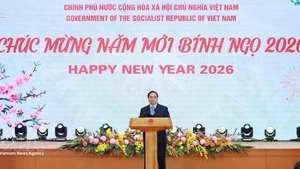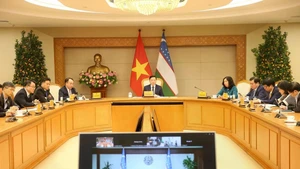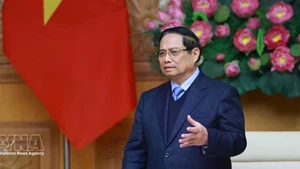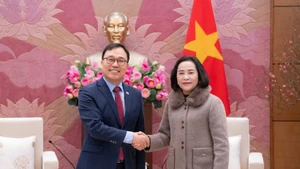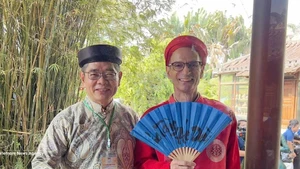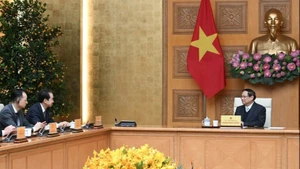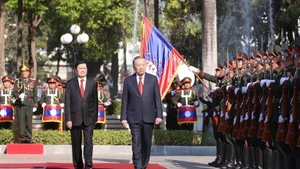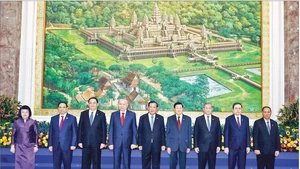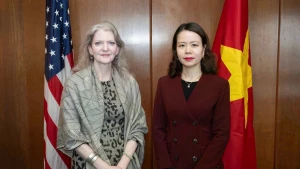According to Son, the signing of the agreement opened up a new page in the Vietnamese people’s struggle for national liberation and unification. After 70 years, the lessons from negotiating, signing and implementing the agreement remain valuable for the nation building, safeguarding and development cause today.
The victory at the 75-day Geneva Conference originated from the correct revolutionary path and the sound leadership and direction of the Party and President Ho Chi Minh; and from the desire for peace and patriotism as well as the mettle and wisdom of the Vietnamese people forged through thousands of years of building and defending the country.
The Geneva Conference contributed to the cultivation of numerous outstanding leaders and diplomats in the Ho Chi Minh era such as Pham Van Dong, Ta Quang Buu, and Ha Van Lau, Son wrote.
Seventy years have passed, the Vietnamese people always keep in mind the pure solidarity as well as support and assistance of the peoples of Laos, Cambodia and socialist countries and peace lovers around the world, including those in France, for Vietnam in its resistance wars against colonialism and imperialism.
Therefore, the Geneva Agreement is a victory of not only Vietnam, but also the three Indochinese countries, and also a victory for the oppressed peoples in their struggle for national liberation. Along with the Dien Bien Phu victory, the Geneva Accords on ending the war and restoring peace in Indochina strongly encouraged the movement to fight for peace and national independence, starting the collapse of old colonialism worldwide. From 1954 - 1964, 17 out of the 22 French colonies gained independence.
In his article, the foreign minister underlined that with the lessons learned from the negotiation and signing process, for nearly 40 years of renewal, Vietnam has consistently implemented its foreign policy of independence, self-reliance, diversification and multilateralisation, proactive and active integration, and being a friend, a trusted partner and an active, responsible member of the international community.
To date, it has set up diplomatic ties with 193 United Nations members, and been an active and responsible member of over 70 regional and international organisations and forums such as the UN, the Association of Southeast Asian Nations (ASEAN), the World Trade Organisation (WTO), the Asia-Pacific Economic Cooperation (APEC), and the Asia-Europe Meeting (ASEM).
It has also signed and been negotiating 19 free trade agreements, thus creating an open network of economic links with about 60 economies around the world.
Promoting the lessons of the Geneva Agreement and the glorious tradition of Vietnam's revolutionary diplomacy, the diplomatic sector, under the Party's leadership, is determined to build a strong, comprehensive, modern, and sustainable Vietnamese diplomacy which contributes to the successful implementation of the foreign policy work out by the 13th National Party Congress’s foreign policy, Son affirmed.
